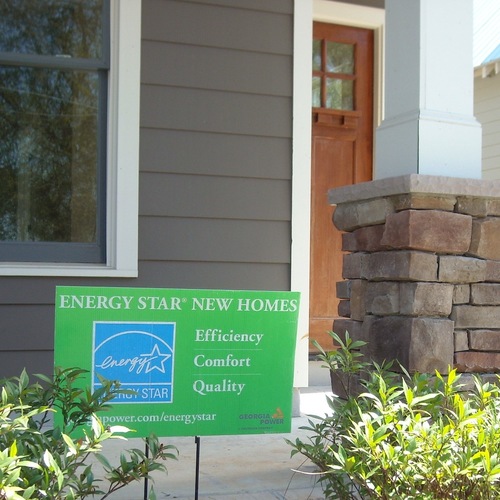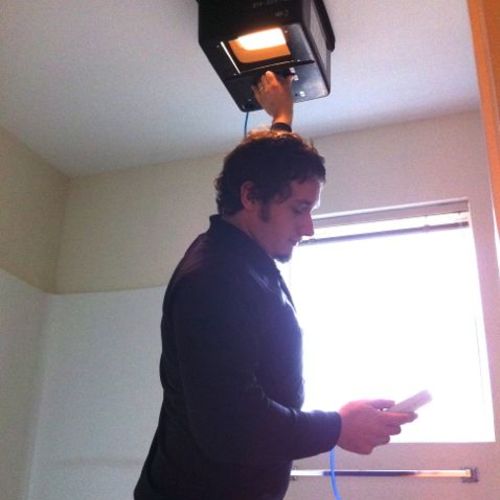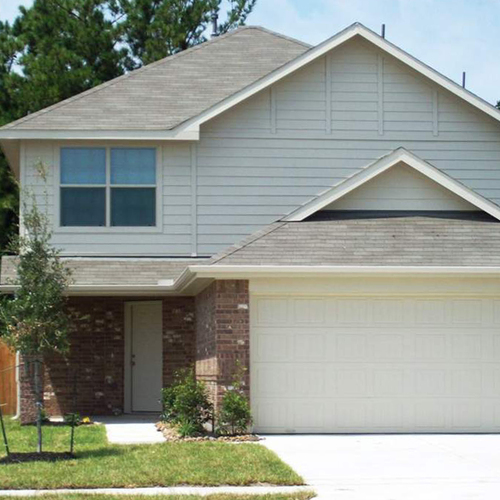
Image Credit: Alliance to Save Energy
Over a thousand home performance contractors, weatherization experts, HERS raters, and energy nerds are gathered in Kansas City, Missouri, this week to attend the ACI Home Performance conference (formerly known as the Affordable Comfort conference).
At one well-attended workshop, energy consultant Michael Blasnik and Shaun Hassel of Advanced Energy Corporation shared a roundup of data on the performance of Energy Star homes — data which are unlikely to be happily received at the U.S. Environmental Protection Agency (EPA). Among the findings presented by Blasnik and Hassel:
- A 2002 study by Wisconsin Energy Star homes showed that Energy Star homes used only 10% less natural gas than new homes without an Energy Star label.
- A NYSERDA study of 1,974 homes built between 2004 and 2006 showed that Energy Star homes used slightly more energy than the average home in New York state. High-scoring Energy Star homes did not use any less energy than low-scoring Energy Star homes.
- A study of 2,998 Energy Star homes in Phoenix showed that Energy Star homes used about the same amount of energy as baseline homes without an Energy Star label.
- A massive study of 23,000 Energy Star homes in Houston showed that Energy Star homes use a little less energy for cooling than baseline homes, but use a little more electricity overall. As codes and appliance standards have increased in stringency over time, the slight performance advantages of Energy Star homes compared to baseline homes have eroded.
“The Energy Star program started with a low bar,” noted Blasnik. “No one has found that Energy Star homes use 25% less energy than other homes.”
Explaining the findings, Hassel noted, “Baseline homes are not as bad as many models assume, and Energy Star homes are not as good as many models assume.”
More Mandatory Requirements
As codes have become more stringent, the Energy Star program…
Weekly Newsletter
Get building science and energy efficiency advice, plus special offers, in your inbox.

This article is only available to GBA Prime Members
Sign up for a free trial and get instant access to this article as well as GBA’s complete library of premium articles and construction details.
Start Free TrialAlready a member? Log in















4 Comments
Links for Energy Star studies?
Martin,
Any chance you (or Blasnik/Hassel) can provide links to the studies referenced above? I'd love to dig into the details of the studies.
Thanks for the summary of a proposed changes.
-John
Here's a link
John,
I just got back from the conference, so I haven't had time to organize all of my materials. But here is a link to the Powerpoint slides that Michael Blasnik used for an earlier version of his presentation:
http://www.affordablecomfort.org/images/Events/48/Courses/1239/P&P2_Blasnik_EnergyPerformanceScoring.pdf
This version does not include any reference to the Phoenix or Houston studies.
Here's some information on the Phoenix study from a story in the October 2006 issue of Energy Design Update:
PHOENIX, AZ -- A recent study shows that Energy Star homes in Phoenix use more energy than homes without an Energy Star label. Researchers conducting the Phoenix Home Energy Efficiency Study found that 3,336 homes categorized as “baseline” homes used an average of 14,107 kWh per year, while 2,979 Energy Star homes used an average 15,831 kWh per year, or 12% more energy. The reason: recently built Energy Star homes are, on average, larger than the studied “baseline” homes. The study, funded by the US Environmental Protection Agency, Arizona Public Service, and Southwest Gas, was conducted by Colby Swanson, an energy expert employed by Advanced Energy Corporation of Raleigh, North Carolina. According to “Measuring Public Benefit from Energy Efficient Homes,” the study’s final report, “It … appears that the increasing size of the average home, a trend the entire country is experiencing (and the subsequent increasing energy use), offsets to a large degree the savings achieved through improvements in home energy efficiency.”
Eventually, the Powerpoint slides from Blasnik and Hassel's presentation should become available. I'll post the link when it shows up on the ACI Web site.
Energy Star and 80% greenhouse gas reduction by 2050?
Houses built this year will only be about 40 years old in 2050, the year by which the Obama administration would like us to reduce greenhouse gas emissions by 80%. In other words, houses built today will play a key role in our climate policy for the next several decades.
If the EPA wanted to help make sure that the administration actually stood a chance of positioning the US to meet that 80% reduction goal, it would set the Energy Star standard at a HERS of 20 or so, and would structure the rebates to be at least partly based on actual performance rather than modeled performance.
Just to be clear: I am not so naive as to think something like this would ever actually happen.
I would really like to
I would really like to believe that there will be 80% greenhouse gas reduction by 2050 but I have my reasons to remain skeptical on this one. Although we should all know by now what to do to stop global warming there is still a large number of people that don't do anything about it. It's seems to be more difficult to fight ignorance than global warming. I recently replaced my appliances with new energy star and I don't plan to stop here, perhaps my new electricity bills will convince some of my neighbors to do the same.
Log in or become a member to post a comment.
Sign up Log in